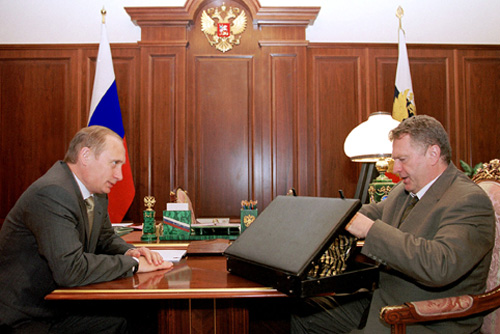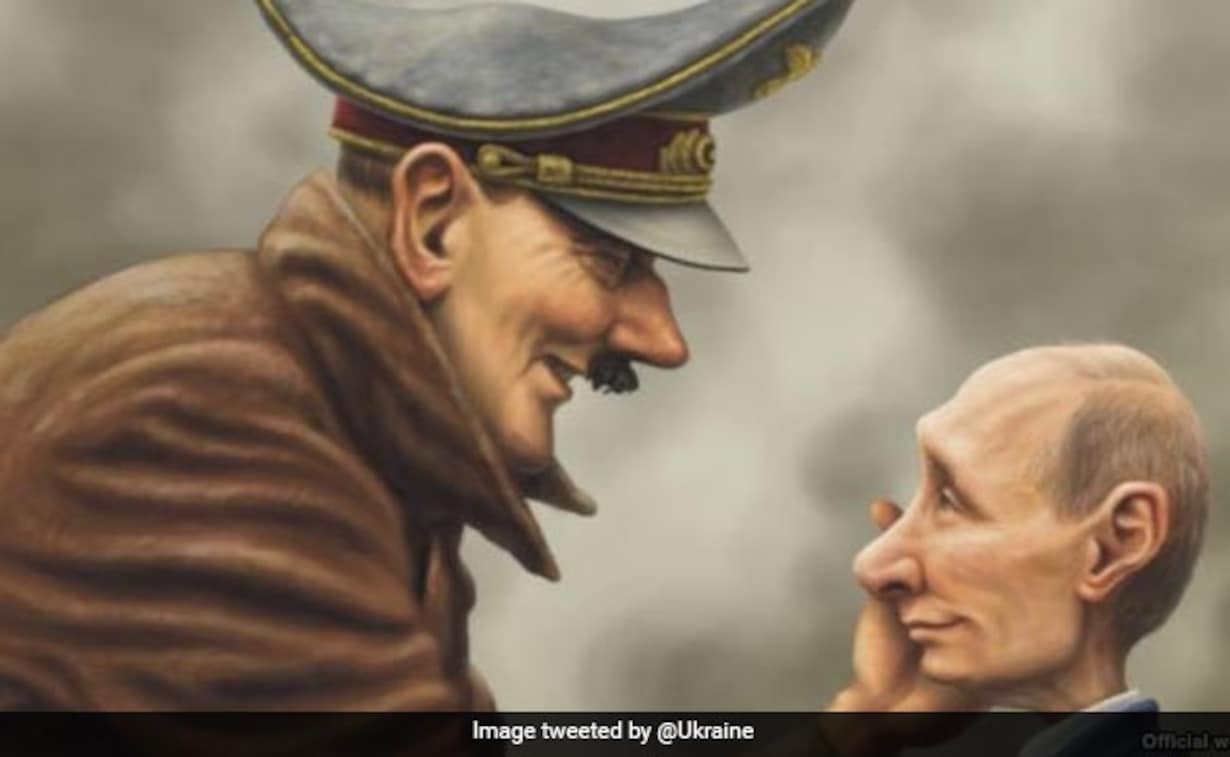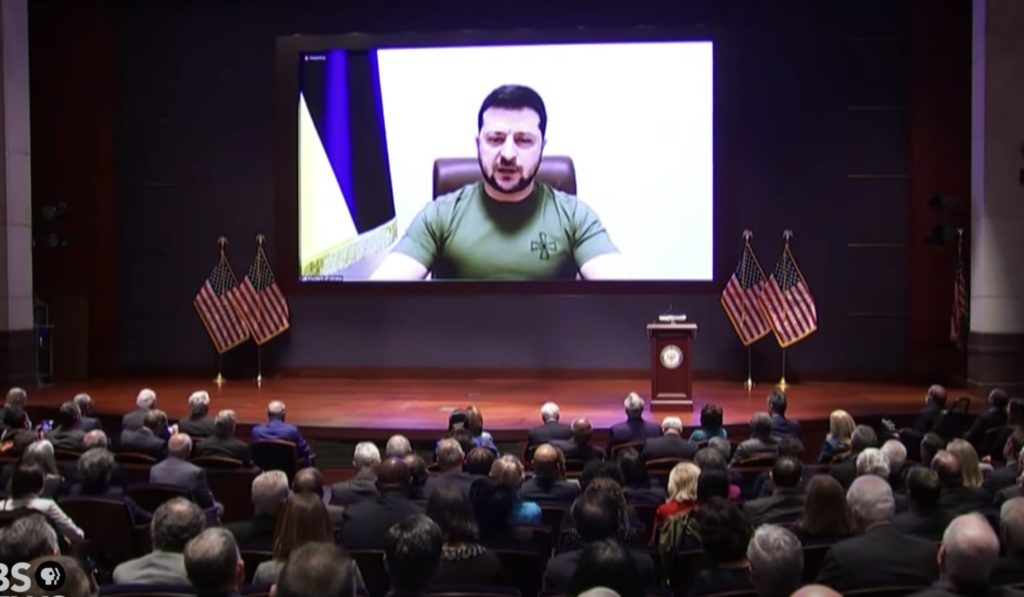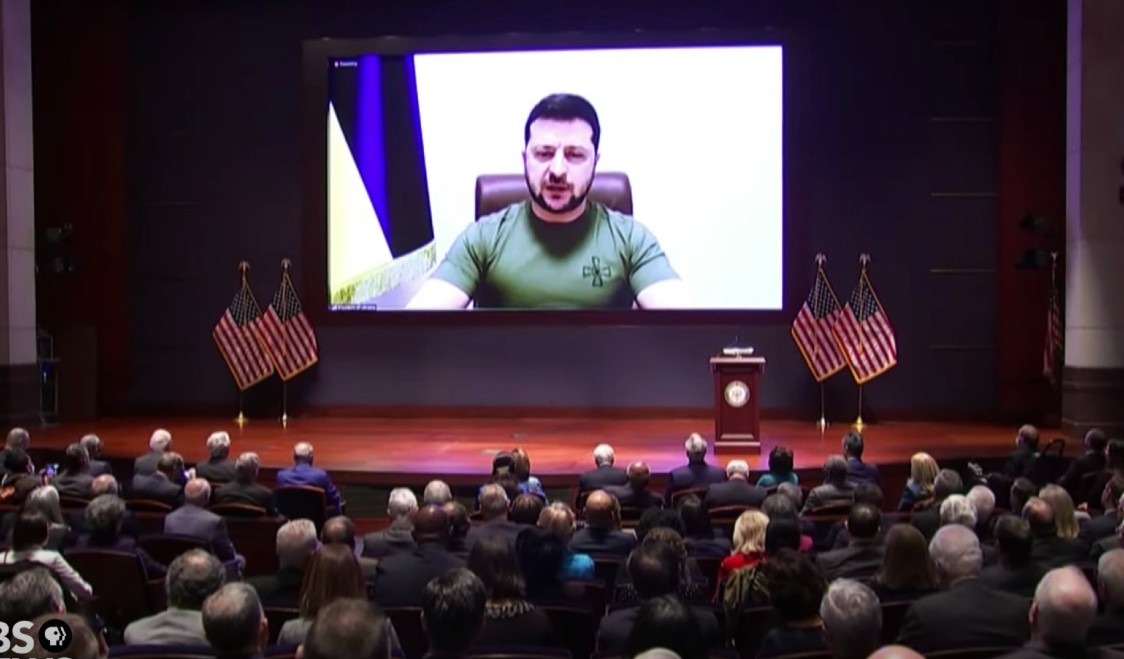In early 1994, just as Schindler’s List was being released into theaters, I had the chance to interview Thomas Kenneally, the author of the book that the film was based on. After he’d answered a few questions about the movie itself, I asked Kenneally if he thought it a fortunate type of irony that Schindler’s List was coming out at this particular moment in history.
The Australian writer knew exactly what I was talking about: Fifty years after the Holocaust, the world was watching the rebirth of neo-Nazism in Germany, the Serbians’ systematic removal and torture of Bosnian Muslims in the Balkans, and an ultranationalist Russian named Vladimir Zhirinovsky spewing anti-Semitism and threats of revanchism. Long before another Vladimir would assume Russian power, Zhirinovsky was already talking about forcibly taking back the territories lost in the 1991 break-up of the U.S.S.R.
Kenneally leaned into the question:
“Yes. I think it’s very important now because this is the first time since World War II that you have actual officials of government using terms like ‘ethnic cleansing.’ Race hate — if you want to see where it leads you, just look at what happened in the Holocaust. If you want to see what the logical lunacy, to use a contradictory term of race hate is, just look at the Holocaust.”
Vladimir Zhirinovsky had founded the “Liberal Democratic Party of the Soviet Union” — which was anything but — and had placed third in the recent presidential election. Like Hitler, this Vladimir was a fascist and a showman. Unlike Hitler, he remained mostly a fringe politician without the power to do large-scale harm to human beings and democratic systems. Then came the second Vladimir.

No one knew exactly what kind of future Vladimir Putin would usher in when he was first elected Russian President in 2000. Under Boris Yeltsin, the country was going through an erratic period of transition, but was still on the path toward becoming a developing democracy.
Two decades later, the media reiterates daily Putin’s years of service in the KGB and his deep-seated revanchist urge to reconstitute the Soviet Union. Using the skills and tendencies he’d picked up as a professional spy, Putin has methodically turned Russia into a fascist security state. He has normalized economic and electoral corruption, jailed and killed political opponents, cracked down on any type of expression resembling free speech, and managed to degrade and isolate his beloved mother Russia in the world order.
Putin’s land-thirsty military invasion and indiscriminate killing spree in Ukraine is a long way from his first foray into unnecessary war. These hyper-cruel conflicts are the hallmark of his career as an authoritarian.
For anyone who might be understandably confused about why a man would physically destroy a country that he ultimately wants to possess, David Scheffer has the answer. The former U.S. Ambassador-at-Large for War Crimes Issues distills Putin’s thinking:
“His tactic was the same with Syria and Assad. You terrorize the civilian population to leave those areas. Then you level those areas, you reclaim your authority over those areas, and someday some of those individuals return, but they return under your subjugation.”
The part of Vladimir Putin’s assault on Ukraine that reminds me of the rise of Vladimir Zhirinovsky’s in the 90s — and then all the way back to Hitler’s Third Reich — is Putin’s cynical and cowardly lie of “denazification” to validate his murderous shelling of innocent Ukrainians. Once the war began, the U.S. Holocaust Memorial Museum condemned not only Putin’s invasion, but his “exploitation of Holocaust history as a pretext for war.”

David Harris, CEO of the American Jewish Congress, took it a step further:
“The Russian propaganda machine, with a straight face, insists there’s no invasion, only a noble effort to stop a Nazi-like ‘genocide’ against Russian speakers in Ukraine. Genocide? What utter rubbish, worthy, yes, of Joseph Goebbels, the Third Reich’s Minister of Propaganda.”
In one form or another, even in the year 2022, anti-Semitism continues to be used as an empty prop for strategic blame. For Jews, this baseless and unremitting hatred toward our community (and I’ve written about this) is both confounding and maddening; when will the world fully appreciate the contributions that Jews and Judaism have made to move humanity forward. I leave a question mark off the end of the last sentence due to the interminable drought that has almost made it feel like a rhetorical question.
Enter Volodymyr Zelenskyy.
No matter how seemingly popular any elected leader or how strong a mandate they’ve been elected to execute, the real test comes when a real test comes. When it does, that leader’s “content of character” becomes very clear. Very quickly.
Forty-four year old Volodymyr Zelenskyy was elected President of Ukraine in 2019 with 73 percent of the vote against incumbent Petro Poroshenko. Zelenskyy graduated from law school in Kyiv before becoming a successful comedian and actor. He had no prior experience in politics outside of his role playing the president of Ukraine in the TV show Servant of the People.
Zelenskyy lost his grandfather and three uncles in the Holocaust. He doesn’t reference this in most of his public appearances, including the last 23 days.
What Zelenskyy does talk about, nearly every day, live from his Ukrainian capital city that is under attack in real time, is the fact that he and his countrymen aren’t going anywhere. That they will not retreat or surrender. That the fight they are waging for their own self-determination and freedom is an ideal that is as democratic — and American — as it is for any other country. There are national leaders who’ve shown less guts after contracting COVID-19.
At the same time, Zelenskyy is doing a diplomatic dance atop a high-wire with the United States. He offers a sincere pat on the back to America for its material support, while in the next sentence citing our very own history as a predicate for why Ukrainians believe we should be doing far, far more.

The extent to which the U.S. should be more involved, right now, right this minute — and how — is a tricky proposition about half a dozen ways. Watching what is happening to the Ukrainian people is impossibly heart-rending.
But evaluating how Zelenskyy has managed this mortal crisis on behalf of his country is not really up for serious debate. At least among people who value life and have rational minds. After his virtual speech to the U.S. Congress on Wednesday — which was a master’s class in political communication — I reached out for reaction from Jonathan Greenblatt, CEO of the Anti-Defamation League:
“President Zelenskyy’s leadership has inspired Ukrainians and their supporters around the world and has certainly surprised the Kremlin. His speech to the U.S. Congress poignantly drove home the suffering of Ukrainians in this war and the need to support them to the extent possible. To see the only Jewish president (outside of Israel) stand up so courageously against the aggression of a major military power, which uses antisemitic and Holocaust-distorting disinformation in its war against Ukraine, brings great pride to Jewish leaders everywhere.”
As I reviewed Greenblatt’s answer, it felt as if he was reading my mind. First and foremost, Volodymyr Zelenskyy’s conduct has brought great pride to freedom-loving, democracy-supporting people of every stripe, nationality and background. All over the world.
At the same time, as a Jew, it is impossible for me not to feel an enormous sense of pride in seeing this man do what he is doing. Members of Zelenskyy’s family were murdered by a crazed war criminal. Now the descendant is going head-to-head with the latest crazed war criminal. It is a new kind of chapter in a long and proud history.
Moreover, it feels as if every person outside of fact-deprived Russia knows what is right in this war and prays that one hero’s leadership — and the heroic Ukrainian fighters that he leads — will result in the chance to rebuild their country and live free on their own terms.


